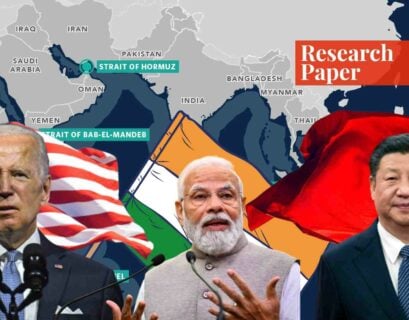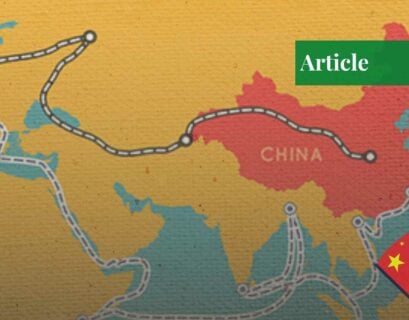Wasif Hassan is a rising law senior at Lahore University of Management Sciences (LUMS).
An Entrance to Hong Kong
Modern-day Hong Kong comprises Hong Kong Island, the Kowloon Peninsula, and the New Territories. Hong Kong, a small peninsula and group of islands, was leased by China to Great Britain in 1898 for 99 years. The handover of Hong Kong to China took place in the Hall of People in Beijing where British Prime Minister Margaret Thatcher and Chinese Premier Zhao Ziyang signed the agreement.
The agreement provided a 50-year extension to the capitalist system developed in Hong Kong owing to Britain’s rule. July 1st 2022 marked the 25th anniversary of the handover of Hong Kong to China under the 50-year governance model agreed upon between China and Britain.
Hong Kong was under Chinese rule since the Qin Dynasty in the 3rd century B.C. and the three regions remained under the control of China till the end of the First Opium War with the British Empire in 1842 when China ceded the southern island to the British. With the end of the Second Opium War in 1860, the Kowloon Peninsula was also handed over by the Convention of Beijing.
The Second Convention of Peking that outlined the 99-year lease expired in 1997. During its time under the British, Hong Kong flourished as a business and financial hub, East-West trading center, and southern China’s commercial gateway and distribution center. After years of negotiations, a formal pact was signed on December 19th, 1984, to officially hand over the mainland to China with the requirement of a “one country, two systems” policy by China’s communist government.
China’s Wishes and Hong Kong’s Woes
Hong Kong currently operates as a special administrative region under China’s control. The 25th anniversary of the handover of Hong Kong to China marks half of the “one country, two systems” rule. On the occasion of the anniversary, President Xi Jinping of China led the 25th anniversary celebrations and insisted that democracy was flourishing. Since the handover, however, China has been increasingly tightening its grip on Hong Kong.
In 2019, China proposed an extradition bill that was to potentially allow people accused of crimes in Hong Kong to be tried in China. The proposed legislation caused unrest and led to some of the largest protests. China passed the national security law, criminalizing acts of secession, subversion, terrorism, and collusion with foreign forces.

The year 2019 saw pro-democracy protests in Hong Kong, but the National Security Law imposed on Hong Kong in 2020 has quashed opposition, and leading pro-democracy figures have fled the country. Despite attempts to curb the protests and unrest caused by the national security law, President Xi said that Beijing had always acted “for the good of Hong Kong.”
Under the “one country, two systems” policy, the city has been given “a high degree of autonomy”. Per this policy, certain freedoms retained by Hong Kong were to include an independent judiciary, multiple political parties, and freedom of assembly and speech. The freedoms of speech and assembly were demonstrated by the subsequent handover anniversaries where residents would take part in a march every July 1st to voice political and social grievances.
However, such rallies and other assemblies and protests have been banned in Hong Kong for the last two years. As a result, critics and Western powers maintain that Beijing has gone back on the promise to retain the way of life in Hong Kong as agreed during the handover.
A Free Hong Kong?
On the eve of the 25th anniversary of Hong Kong’s handover to China, fugitive and former opposition lawmaker Ted Hui shared in a Facebook post that freedom and the rule of law are dead in Hong Kong. He left the city while on bail for the charges he argues are politically motivated. Another prominent activist, Nathan Law, shares that the city he once knew has become unrecognizable.
Despite the struggles of Hong Kongers under the suppression from Beijing, a group of about 30 people gathered to hold the Chinese national flag and a patriotic banner celebrating the 101st year of the establishment of the Chinese Communist Party and the 25th handover anniversary of Hong Kong to China. The 25th Hong Kong handover to China anniversary marks the exhaustion of half of the time frame set for the “one country, two systems” policy.
However, the totalitarian actions of Beijing have curbed the freedoms granted to the citizens. As a result, many pro-democracy activists and residents have fled the country using the British National (Overseas) passport scheme and immigration pathways laid out by Canada and Australia.
Over 94,000 Hong Kong residents departed the city via Hong Kong International Airport in 2022 alone, with 26,000 residents arriving. The situation in Hong Kong on its 25th handover anniversary is that the intervention of the Chinese government has led to dissatisfaction among the citizens whose rights and freedoms have been curbed. As a recourse, they seek to live abroad.
If you want to submit your articles, research papers, and book reviews, please check the Submissions page.
The views and opinions expressed in this article/paper are the author’s own and do not necessarily reflect the editorial position of Paradigm Shift.


















